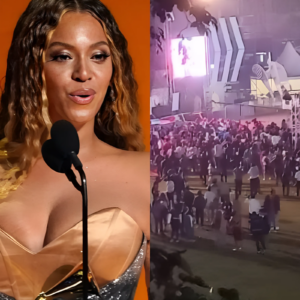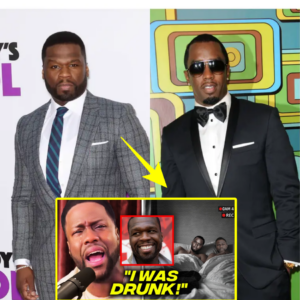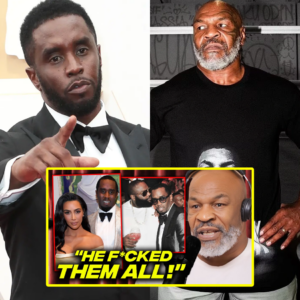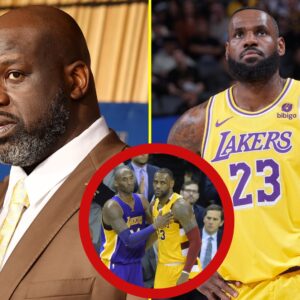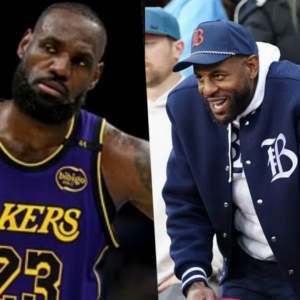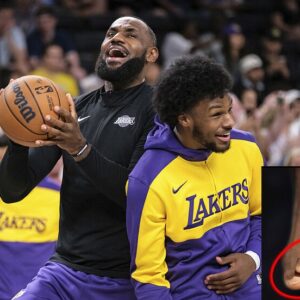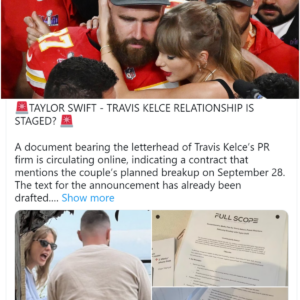In the ever-shifting landscape of Hollywood, recent events have ignited a firestorm of controversy, shining a harsh spotlight on some of the industry’s biggest names. At the center of this storm is Sean “Diddy” Combs, a mogul whose empire spans music, fashion, and entertainment. Allegations of misconduct, abuse, and criminal behavior have plagued Diddy for years, but recent developments have brought these accusations to the forefront with unprecedented intensity.

One of the most surprising revelations amidst the turmoil is the alleged involvement of comedian and actor Kevin Hart. Once considered a close ally of Diddy, Hart now finds himself ensnared in the fallout of the mogul’s legal troubles. Leaked footage from Diddy’s infamous parties and damning testimonies from various individuals have cast a shadow over Hart’s reputation, raising questions about his own complicity in the scandal.
But to fully understand the implications of these allegations, it’s essential to examine the broader culture of Hollywood and the dynamics that govern it. Throughout history, the entertainment industry has been rife with rumors, secrets, and scandal, often shielded from public view by a veil of silence and complicity. From the silent film era to the present day, stories of excess, exploitation, and abuse have circulated behind closed doors, perpetuating a cycle of toxicity and corruption.
The parallels drawn by industry veterans, such as actor John Amos, between the current scandal surrounding Diddy and past controversies serve as a sobering reminder of the industry’s dark underbelly. References to figures like Fatty Arbuckle, whose career was derailed by scandal in the early days of Hollywood, highlight the cyclical nature of these issues and the enduring power dynamics at play.
Central to Amos’s commentary is the concept of “overseers,” individuals who wield power and influence within the industry, often at the expense of others. Drawing a comparison to the overseers of plantation-era America, Amos paints a stark picture of the entrenched hierarchies and systemic inequalities that pervade Hollywood. Like their historical counterparts, modern-day overseers leverage their positions to maintain control and preserve the status quo, even in the face of widespread misconduct and wrongdoing.
For those like Kevin Hart, who find themselves caught in the crossfire of scandal, the path forward is fraught with uncertainty. As allegations continue to surface and public scrutiny intensifies, Hart must grapple with the consequences of his association with Diddy and confront uncomfortable truths about the industry he calls home. The specter of “gatekeepers,” or those who hold the keys to success and opportunity, looms large, reminding Hart and others that their fates are often determined by forces beyond their control.
Yet amidst the chaos and controversy, there is hope for change. The courage of whistleblowers, the power of solidarity, and the resilience of survivors all serve as beacons of light in the darkness, signaling a potential shift towards a more accountable and equitable industry. As the dust settles and the fallout from Diddy’s downfall reverberates throughout Hollywood, one thing is clear: the time for reckoning has come, and those who have long wielded power with impunity may soon find themselves held to account.
News
Diddy LEAKS Disturbing FOOTAGE Of Beyonce & Jay Z | New EVIDENCE Revealed
The unfolding drama involving Diddy, Jay-Z, and Beyoncé has captivated audiences worldwide. Allegations of scandalous tapes, federal raids, and personal vendettas have dominated headlines, leaving fans shocked…
Tiffany Haddish SHADES Jennifer Hudson For Stealing Common From Her
Tiffany Haddish is making it abundantly clear that she’s not thrilled about comments on new relationship with Jennifer Hudson. She threw some major shade at Jennifer, hinting…
Breaking: Beyoncé’s “Cowboy Carter” Tour Sees Lackluster Ticket Sales, “Only 1500 So Far”
In a surprising twist of fate, Beyoncé’s highly anticipated “Cowboy Carter” tour has encountered a lackluster start, with only 1500 tickets sold for its opening night. This…
“Blue ivy is pregnant” Cardi b Exposed truth about the pregnancy on live TV show says CONGRATS
Welcome to CB Gossip, your go-to source for all the juiciest entertainment news. Don’t forget to hit that subscribe button and ring the bell for more updates….
Kevin Hart FREAKS OUT As 50 Cent LEAKS New Video Of Him & Diddy..
Absolutely, let’s delve deeper into these issues. It seems like there’s a plethora of speculation and rumors surrounding celebrities and their connections to Diddy’s controversial activities. From…
Mike Tyson EXPOSES Members Of Diddy’s S3X CULT..
Unveiling Diddy’s Troubles: A Deep Dive into Allegations and Controversies In recent years, Sean “Diddy” Combs, the rap mogul and entrepreneur, has found himself embroiled in a…
End of content
No more pages to load


